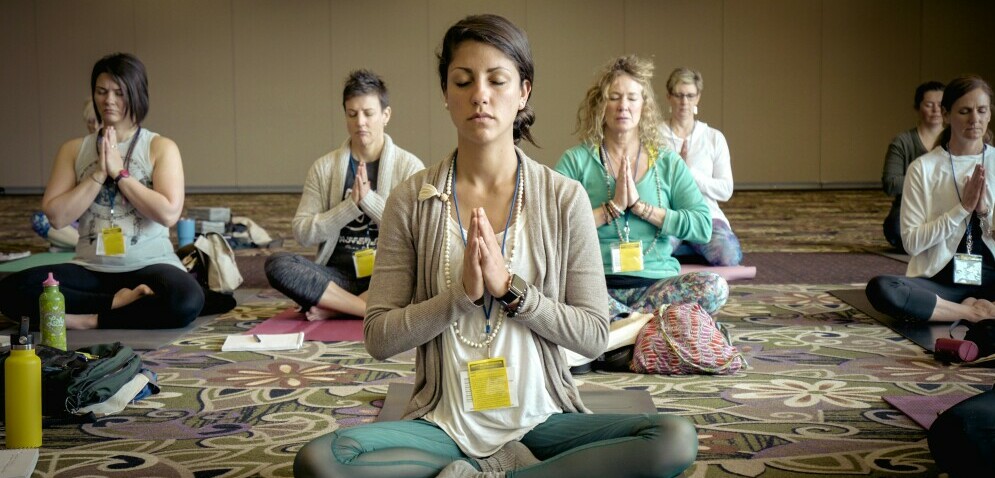Overcoming Anxiety: Strategies for a Calmer Life
Having wrestled with anxiety as a younger man, I know that it can be a debilitating condition that can severely limit one’s ability to function across a variety of contexts. Anxiety is a common mental health challenge that affects millions of people across the globe. Whether it manifests as generalized anxiety disorder, social anxiety, panic attacks, or situational anxiety, its impact can be profound, influencing our daily lives and overall well-being. Importantly, overcoming anxiety is not only possible but can also be achieved through a variety of techniques, strategies, and lifestyle changes. This blog post aims to explore the nature of anxiety, its effects, and effective ways to manage and overcome it.
Understanding Anxiety
Anxiety is fundamentally a natural human response to perceived threats or stressors. It is characterized by feelings of worry, fear, or apprehension that can be mild or overwhelming. Physiologically, anxiety triggers the body’s fight-or-flight response, leading to physical symptoms such as increased heart rate, sweating, shaking, and even gastrointestinal disturbances. While some level of anxiety is normal and can even be beneficial in motivating us to prepare for challenges, chronic anxiety can become debilitating.

The Spectrum of Anxiety Disorders
Anxiety disorders encompass a range of conditions, including but not limited to:
- Generalized Anxiety Disorder (GAD): Persistent and excessive worry about various aspects of life.
- Social Anxiety Disorder: Intense fear of social situations and being judged by others.
- Panic Disorder: Recurrent panic attacks characterized by sudden and overwhelming fear.
- Specific Phobias: Extreme fear of specific objects or situations.
- Obsessive-Compulsive Disorder (OCD): Recurrent, unwanted thoughts and repetitive behaviors.
- Post-Traumatic Stress Disorder (PTSD): Anxiety resulting from experiencing or witnessing a traumatic event.
Understanding the specific type of anxiety one is experiencing is crucial for effective management and treatment.
Why Overcoming Anxiety Matters
Living with anxiety can have significant psychological and physical consequences. It can affect personal relationships, job performance, and general quality of life. Moreover, persistent anxiety can lead to or exacerbate other mental health conditions, such as depression. Thus, addressing anxiety is not only about alleviating discomfort but also about improving overall health, function, and happiness.
Strategies for Overcoming Anxiety
While overcoming anxiety can be a journey that varies widely from person to person, several strategies have proven effective. Below, we delve into various approaches that can be incorporated into daily life to help manage and reduce anxiety.
1. Cognitive-Behavioral Therapy (CBT)
Cognitive-Behavioral Therapy (CBT) is one of the most widely effective treatments for anxiety. It focuses on identifying and challenging negative thought patterns and beliefs that contribute to anxiety. Through structured sessions with a therapist, individuals learn to reframe their thoughts, develop coping skills, and gradually confront their fears in a safe and supportive environment.
2. Mindfulness and Meditation
Mindfulness practices, including meditation, yoga, and deep-breathing exercises, have been shown to significantly reduce anxiety. Mindfulness allows individuals to focus on the present moment without judgment, helping to break the cycle of anxious thoughts. Simple techniques, such as guided meditations or breathing exercises, can be easily incorporated into daily routines to promote relaxation.

3. Physical Activity
Regular physical activity is a powerful tool in managing anxiety. Exercise releases endorphins, which can enhance mood and reduce stress. Activities like running, swimming, or even brisk walking can provide immediate relief from anxiety symptoms. Additionally, group exercise classes can also provide social support and a sense of community.

4. Healthy Lifestyle Choices
The impact of nutrition and lifestyle choices on mental health cannot be overstated. A balanced diet rich in fruits, vegetables, whole grains, and lean proteins can support brain health and reduce anxiety symptoms. Limiting caffeine and alcohol is also crucial, as these substances can heighten feelings of anxiety.

5. Sleep Hygiene
Quality sleep is essential for emotional regulation. Poor sleep can exacerbate anxiety, creating a vicious cycle. Establishing a regular sleep schedule, creating a calming bedtime routine, and ensuring a conducive sleep environment can help improve sleep quality, thus aiding in anxiety management.
6. Social Support
Connecting with others can provide significant relief from anxiety. Talking about feelings with friends, family, or a support group can help alleviate burdensome thoughts and offer new perspectives. Building a strong social network not only provides emotional support but also reduces feelings of isolation.

7. Limit Exposure to Triggers
Identifying and limiting exposure to anxiety triggers is crucial in managing symptoms. This could involve setting boundaries with certain people, avoiding stressful situations, or being mindful of media consumption that amplifies anxiety, such as negative news or social media.
8. Professional Help
For those struggling significantly with anxiety, seeking professional help from a mental health provider can be crucial. Therapists, psychologists, and psychiatrists can offer personalized treatment plans, including therapy and medication, depending on the severity of the condition.

9. Self-Compassion and Acceptance
Practicing self-compassion involves treating oneself with kindness and understanding, especially during anxious moments. Accepting that anxiety is a part of life and reframing it as a challenge rather than a failure can foster resilience. Techniques such as journaling can help individuals process feelings and track their progress in overcoming anxiety.
10. Gradual Exposure to Fear
For specific phobias and social anxiety, gradual exposure to feared situations can help desensitize the response to those triggers. This gradual approach, often facilitated by a therapist, can build confidence and reduce anxiety over time.
Conclusion
Overcoming anxiety is a multifaceted journey that requires patience, self-exploration, and the willingness to try various approaches. It’s essential to remember that progress may be gradual and nonlinear; setbacks can occur, but they do not signify failure. By incorporating a combination of the strategies highlighted in this post, individuals can learn to manage their anxiety effectively and lead a more fulfilling life.
If you or someone you know struggles with anxiety, reaching out for help is a vital first step. Remember, you are not alone in this journey, and support is available. As you navigate the path toward managing your anxiety, take it one day at a time, and celebrate the small victories along the way.

Grant Edward Rayner